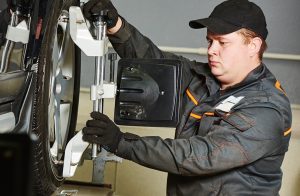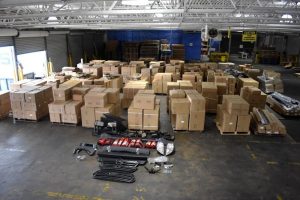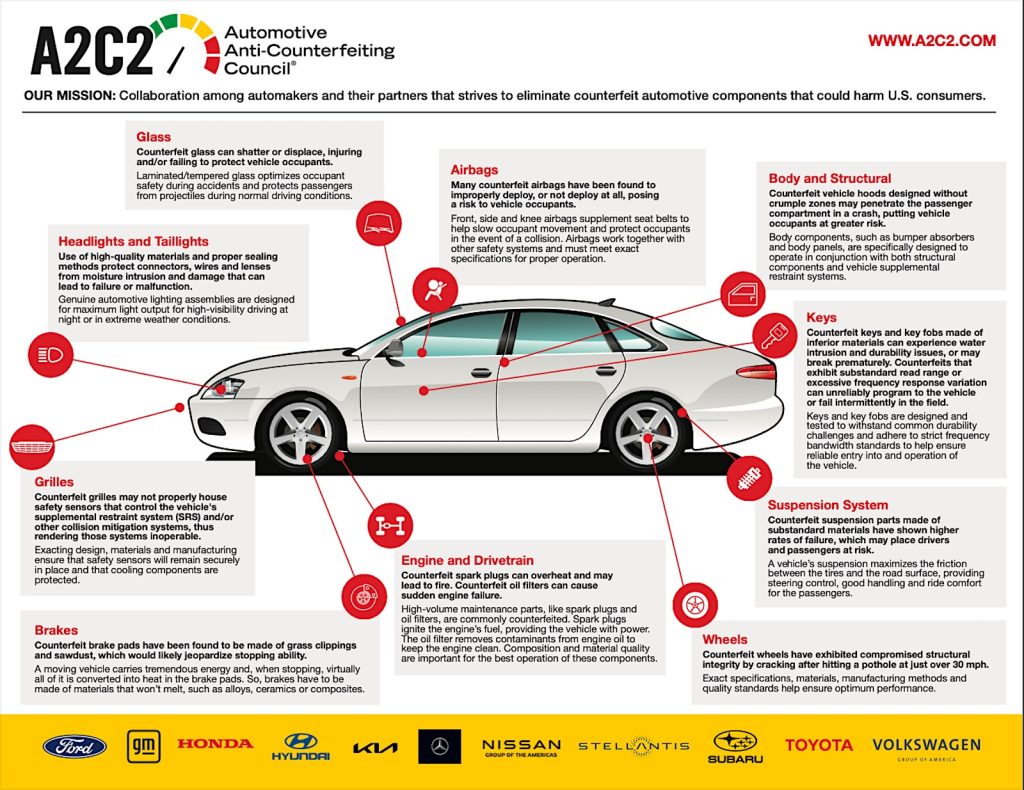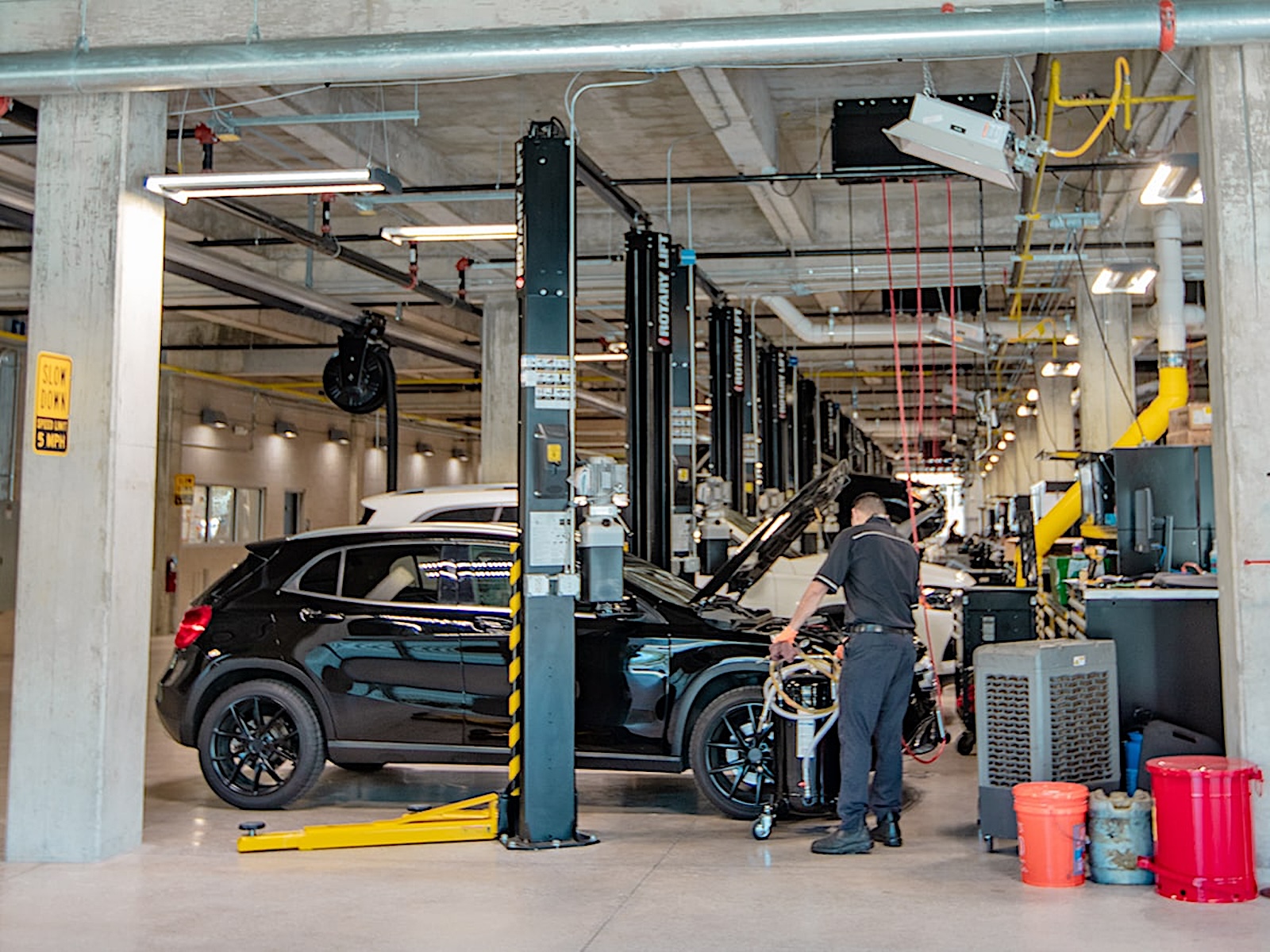Automakers face a slew of problems regularly: emissions compliance, workplace or office issues, quality shortcomings and more. However, the problem of counterfeit parts affects them all. Mercedes-Benz works with law enforcement globally to combat the problem, which can make vehicles less safe and certainly takes money out of the automaker’s coffers.

Mercedes-Benz helped with 740 raids of counterfeit parts sellers in 2023. The non-genuine parts affect safety and cut into profits.
Mercedes-Benz is fighting counterfeiters, and the company’s making an impact. Working with trade officials and law enforcement, Mercedes help seize more than 1.6 million counterfeit components in 2023. The company participated in 740 raids around the world in 2023, which is 20% more than the previous year.
“The counterfeiting industry generates enormous margins and has the structures of organized crime,” said Renata Jungo Brüngger, Member of the Board of Management of Mercedes-Benz Group AG for Integrity, Governance & Sustainability. “It endangers road safety, takes no account of the environment and stands neither for fair wages nor for occupational safety. There are no quality controls.
“By taking action against these highly criminal structures consistently and with all legal means, we protect not only the reputation of our brand, but also our customers, other road users and ultimately all victims of the counterfeiting industry. In close cooperation with the authorities, we were able to track down many counterfeit factories directly.”
A Federal Trade Commission study estimated that counterfeit auto parts, which may not have undergone the same levels of testing and design, cost the industry $3 billion a year in the United States and $12 billion a year globally.
Industry-wide problem
While Mercedes works to make a big dent in the counterfeiting enterprises globally, it’s important to know the German automaker isn’t alone. Seemingly every automaker battles problems with counterfeiters.
The U.S. Department of Homeland Security regularly works with automakers to bust counterfeit rings. The agency jumped on a big one in Detroit in February, yielding scores of inexpensive, but fake parts for Ford, Chevrolet and Dodge vehicles.
Federal agents focused on one repair shop in near Detroit, but it expanded to six total across the Detroit area, according to a story from the Detroit News. Based on the investigation, the found parts including bumpers, grilles, wheels, tires and thermostat hoses “stacked to the ceiling,” the News reported.
While that investigation is ongoing, it reflects a battle that automakers have waged for decades: counterfeit replacement parts. The Detroit News cited one instance where someone purchased a Dodge Journey grille for $76.32. The same authentic grille costs $464.
Not only do these parts represent lost revenue to automakers, but many of the parts are of inferior quality which presents a variety of issues, including safety. The problem is so bad that some automakers have “brand protection” teams.
More Mercedes Stories
- Mercedes-Benz Launches Branded High-Performance Luxury Charging Network
- Review: 2024 Mercedes-Benz GLC 300 4MATIC Coupe
- First Look: 2025 Mercedes-Benz G 580 Hits The Trail with EQ Technology
China problem

U.S. Customs & Border Patrol seize counterfeit parts across the U.S., like this seizure in Philadelphia.
Despite the efforts of government agencies and automakers, the problem isn’t going away. The rise of the Chinese auto industry catalyzed the growth of the counterfeit part industry. China is a major source of the production of non-authentic components as well as the distribution of them from other nearby Asian countries.
Some of the components seized in Detroit were transported from Changchun, China, an industrial area known as the “City of Automobiles.” But the parts find their way into the U.S. on a smaller scale as well via the internet. The internet makes it easier to move these components.
Solving the problem
Right now, it seems raiding the operations of the counterfeiters is the top measure, but there is a movement to offer more targeted assistance: the Shop Safe Act of 2024, which was introduced in June.
 The act incentivizes online marketplaces to improve their ability to detect and stop counterfeit goods by protecting online marketplaces from civil liability if they comply with anti-counterfeiting measures, including requirements to better vet third-party sellers and provide more information to consumers about where the products they buy are originated.
The act incentivizes online marketplaces to improve their ability to detect and stop counterfeit goods by protecting online marketplaces from civil liability if they comply with anti-counterfeiting measures, including requirements to better vet third-party sellers and provide more information to consumers about where the products they buy are originated.
“For far too long and for no acceptable reason, millions of American consumers have been ripped off by purchasing fake, illegal, and unsafe counterfeit products sold on online marketplaces. How we stop it starts right here,” said Congressman Darrell Issa, the California Republican heading the House Judiciary Subcommittee on Courts, Intellectual Property, and the Internet.
Issa was joined in sponsoring the bill by New York Democrat Jerry Nadler, Virginia Republican Ben Cline and Georgia Democrat Hank Johnson.
“The nationwide problem of third-party sellers peddling bogus products on platforms is made worse because these sham sellers are rarely — if ever — held accountable for the damage they inflict not only to individuals but to the entire structure of consumer confidence as well.”




0 Comments